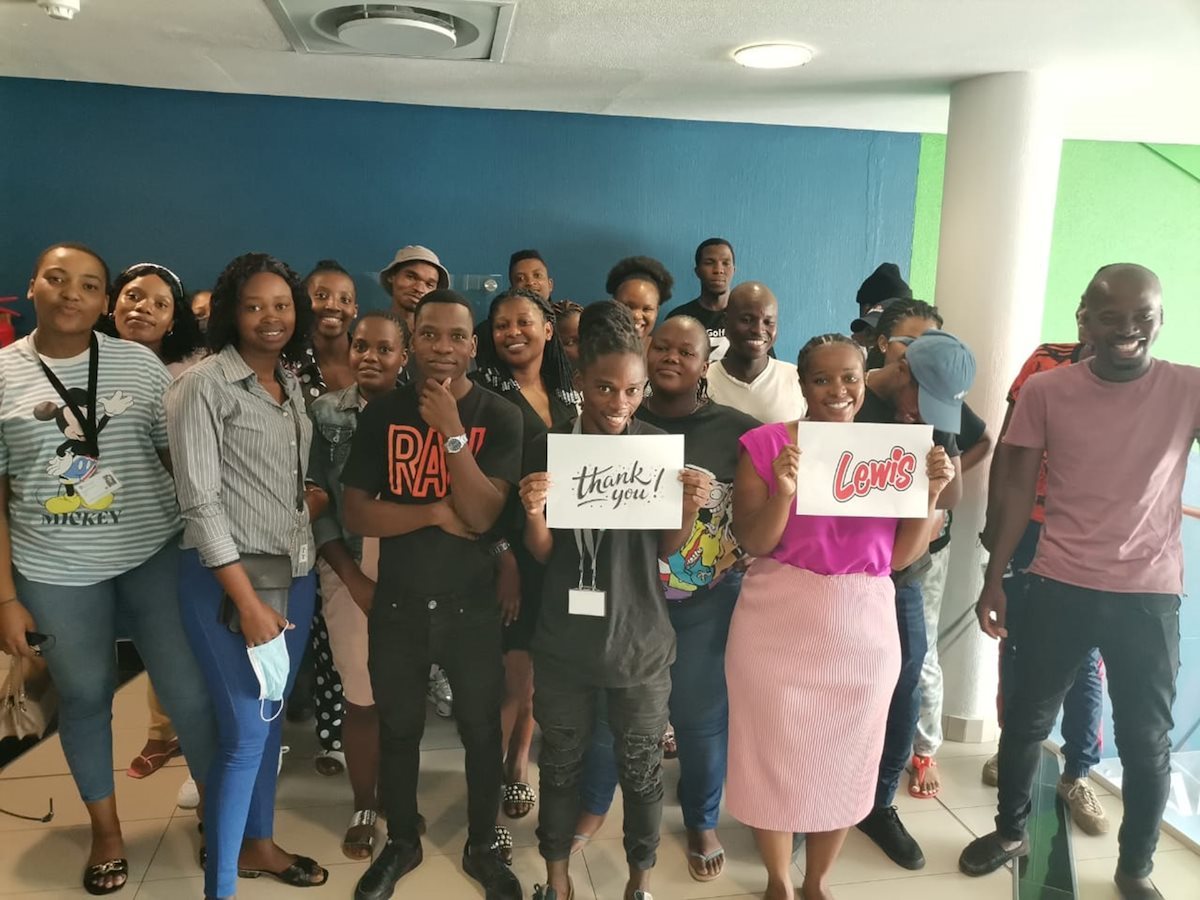With the month of November marking Global Disability Month and 3 December being International Day of Persons with Disabilities, it's a good time of year to reflect on how we can empower people with disabilities, while also helping them to play a bigger role in our economy.

Participants in the recent Lewis learnership
Previous census data published by Statistics South Africa indicates that the national disability prevalence rate in our country is around 7.5% of the total population.
Stats SA further found that “persons with severe disabilities experience difficulty in accessing education and employment opportunities.”
“Households headed by persons with disabilities were found to have less access to basic services compared to households headed by persons without disabilities,” said Stats SA of its 2011 census data.
With South Africa’s unemployment rate hovering at almost 33%, every job counts. And there is an opportunity for our country’s corporates to focus more on increasing employment among disabled South Africans while reaping benefits from both a B-BBEE and tax rebate perspective.
Disability and employment equity
The Employment Equity Act, together with the Broad-Based Black Economic Empowerment Act, encourages businesses to employ people with disabilities.
Combined, these acts further set targets for the employment of black South Africans with disabilities.
The benefits for those businesses who comply can be significant, especially for businesses that carry out learnership programmes that result in persons with disabilities finding full-time employment.
In cases such as these, businesses can attain up to 10-16 points on their B-BBEE scorecard for a disability project. Furthermore, businesses can offset up to R60,000 on their provisional tax filings if they meet the strict criteria of empowering persons with disabilities in the workplace.
All of this does require experts guiding businesses through this process in the right way.
Case in point: Lewis learnerships
As part of a learnership programme for local retailer Lewis, Optimi Workplace assisted with finding 335 disabled persons to take part in a call centre training programme.
What made this process a challenge was that we had to find disabled learners with a matric qualification. Despite all the progress that has occurred in South Africa since the dawn of democracy, disabled persons still face big challenges in obtaining this basic education requirement.
However, Optimi Workplace managed to find enough candidates who met this educational criteria. These candidates' disabilities ranged from physical disabilities, through to depression, epilepsy, visual and hearing impairments.
Brett Abraham 22 Nov 2022 The learnerships took place in Johannesburg, Cape Town and Durban over the last two years, and upon completion, the groups have received qualifications that allow them to operate in call centres. The learners have earned a monthly stipend, based on attendance, and this also proved crucial to their own sense of self-worth and development.
As part of their training, they would attend theoretical classes during the week and then subsequently carry out practical components at Optimi Workplaces training centres. These centres purely focused on practice role play to simulate real-world environments, thereby providing the learners with a safe environment to attain their new skills.
The programme thus has been a great success with 178 of the learners being placed in permanent employment positions.
This has occurred despite learners in KZN, for instance, having struggled through the impact of the severe floods that hit the region earlier this year. The commitment and dedication has been exemplary.
With skills development programmes such as these, corporates do benefit in terms of the incentives that exist in regulation and legislation. However, these programmes crucially also make a huge difference in lives of individuals, who previously may not have had the opportunities to uplift and empower themselves.
Therefore, these programmes are a crucial part of the puzzle in taking our country forward and ensuring that there is a better life for all.







































